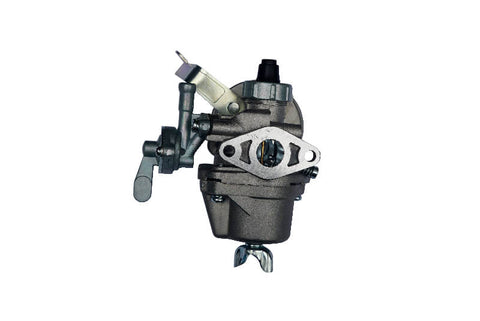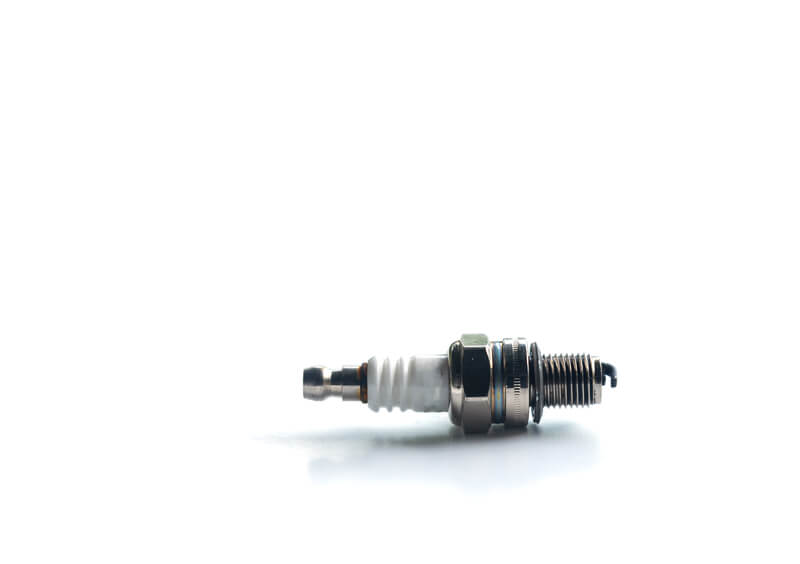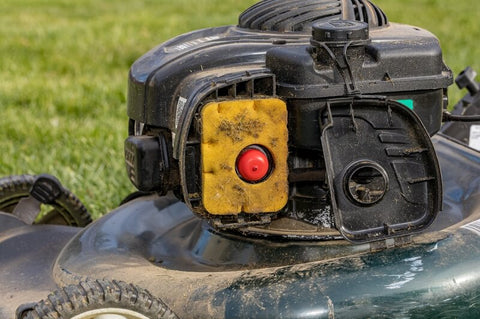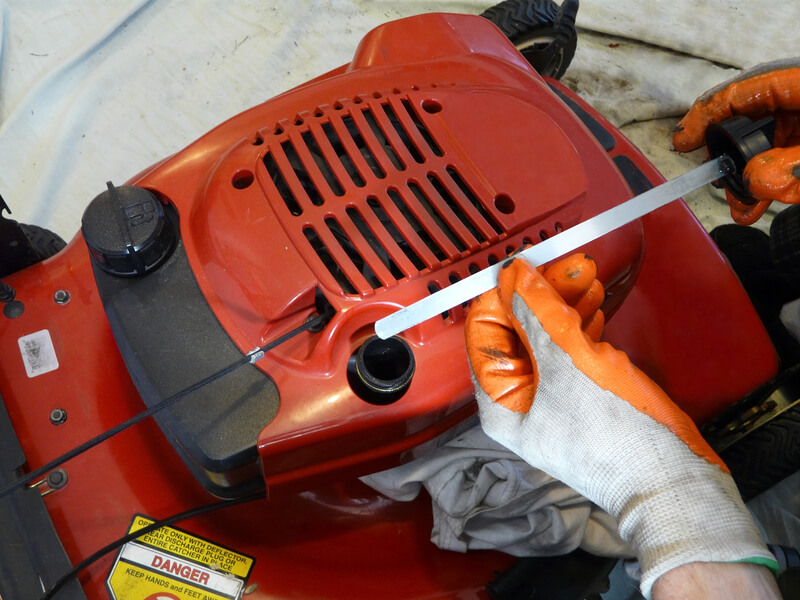Have you ever experienced the frustration of your lawn mower starting and then dying almost immediately? This is a common issue that plagues many gardening homeowners. Before we delve deeper, let's explore the engine, the heart of your trusty grass cutter.
Typical Lawn Mower Engine Components
A typical lawn mower engine consists of several key components, each vital in ensuring a successful mowing experience. These components include:
- Carburetor: Responsible for mixing air and gasoline in the correct ratio for smooth engine operation.
- Spark Plug: Generates the spark that ignites the fuel-air mixture in the cylinder.
- Air Filter: Protects the engine from dust, dirt, and debris.
- Fuel Filter: Screens out foreign particles or liquids from the fuel.
- Ignition Coil: Transforms low voltage into high voltage to create a spark in the spark plug.
Understanding how these parts work together is crucial for diagnosing starting problems.
Now, let`s discuss some issues and provide solutions to help you maintain a well-functioning lawn mower.
Fuel System Issues and Stalling

Image Source: dreamstime.com
If your lawn mower starts and dies immediately, you might face a fuel system issue. Here's a breakdown of potential culprits:
Clogged Fuel Filter: A dirty fuel filter restricts fuel flow, causing the engine to sputter and die.
Contaminated Fuel: Stale or dirty gasoline can lead to improper combustion and engine stalling.
Faulty Carburetor: A malfunctioning carburetor can disrupt the fuel-air mixture, causing starting problems. Here`s why:
- Dirt: Over time, grit and grime can accumulate in the carburetor, restricting fuel flow and causing an improper mix of air and fuel.
- Faulty Components: A carburetor has various moving parts, such as the float and jets. If these are defective or stuck, a lawn mower that starts up eagerly but dies without warning can result.
- Sticky Residue: Old fuel left sitting can leave behind a sticky residue that hampers the carburetor's operation, leading to startup woes.
The lawn mower engine carburetor ensures that the proper mixture of fuel and air will enter the engine cylinder to allow for combustion. Old or bad fuel can leave a gummy residue inside the carburetor which can restrict it, preventing the proper ratio of fuel and air from entering the cylinder and stalling the engine.
Source: repairclinic
Spark Plug Problems and Engine Stopping

Image Source: dreamstime.com
The spark plug plays a vital role in engine ignition. Here are common spark plug issues that can lead to starting and stalling problems:
- Fouled Spark Plug: Excessive buildup of carbon deposits or debris prevents the spark plug from generating a proper spark.
- Worn-Out Spark Plug: Electrode wear over time reduces spark efficiency, hindering ignition.
- Improperly Gapped Spark Plug: An incorrect spark plug gap disrupts the spark and can cause starting issues.
Clogged Air Filter and Engine Stalling

Every lawn mower engine relies on a steady flow of clean air to run efficiently. Air filters protect your lawn mower's engine from dust, dirt, and debris hindering performance. A well-functioning air filter is a barrier, allowing your engine to breathe easily while trapping potential contaminants. But what happens when an air filter gets clogged?
- A clogged air filter may lead to a rich fuel mixture - too much fuel, not enough air - which can cause the engine to stall shortly after starting.
- Engine power and performance are significantly reduced as the airflow is impeded, preventing the engine from running smoothly.
- Continued use of a lawn mower with a clogged air filter can increase the wear and strain on the engine, leading to more serious issues over time.
Ignition Coil and Engine Failure
The ignition coil transforms low voltage into the high voltage needed to create a spark in the spark plug. A failing ignition coil can lead to various problems, including:
- Intermittent starting: The mower might start inconsistently or not at all.
- Unexpected shutdowns: The engine might die unexpectedly due to an inability to maintain the necessary voltage.
- Weak engine power: When the ignition coil isn't working correctly, you may notice a decreased engine performance or a lack of power as you mow.
The Risks of Overfilled Engine Oil

Image Source: dreamstime.com
Overfilling your engine oil can lead to a plethora of issues:
- Reduced performance: Excess oil can create aeration due to foam forming in the crankcase, which decreases the oil's ability to lubricate effectively.
- Oil leaks: Overfilled oil can cause pressure to build up, leading to potential leaks that could harm engine components.
- Damage to the catalytic converter: Oil can enter the exhaust system, leading to expensive catalytic converter damage.
- Engine failure: In severe cases, excess oil can cause engine hydrolock, which can result in significant damage and hefty repair costs.
Maintaining a Healthy Lawn Mower: Preventative Measures
By following these preventative measures, you can minimize the chances of your lawn mower starting and then dying:
- Regular Maintenance: Schedule regular checkups and tune-ups for your lawn mower according to the manufacturer's recommendations.
- Clean Air Filter: Inspect and clean the air filter regularly to ensure optimal airflow for the engine.
- Fresh Fuel: Use high-quality gasoline suitable for your mower, and do not let fuel sit in the tank for extended periods.
- Fuel Stabilizer: Consider adding a fuel stabilizer to prevent gasoline degradation, mainly if the mower is used infrequently.
- Spark Plug Replacement: To ensure proper ignition, replace spark plugs at the manufacturer's recommended intervals.
Safety Precautions While Troubleshooting
Safety should always be paramount when working on your lawn mower. Here are some safety tips to remember:
- Disconnect the Spark Plug: Before performing any maintenance or troubleshooting, disconnect the spark plug wire to prevent accidental engine start-up.
- Allow the Engine to Cool: Never work on a hot engine. Let it cool completely before troubleshooting any issues.
- Consult the Manual: For specific maintenance instructions and safety precautions, refer to your lawn mower's owner's manual.
Troubleshooting Checklist: Why Your Lawn Mower Starts and Then Dies

Download our FREE Troubleshooting Checklist: Why Your Lawn Mower Starts and Then Dies
Download Troubleshooting Checklist: Why Your Lawn Mower Starts and Then Dies
Conclusion: Get Your Lawn Mower Running Smoothly Again
Throughout this article, we've explored why your lawn mower might start and then stop abruptly. From fuel system issues to faulty carburetors, problematic spark plugs, and overheating engines, we've covered the critical trouble spots that can hamper your mowing experience. While frustrating, these problems are often within your ability to diagnose and fix.
Maintaining a healthy lawn mower is vital for your equipment's longevity and the lawn's beauty. Begin with simpler solutions, like checking the gasoline quality and the air filter, before moving on to more complex areas, such as the ignition coil and spark plugs. This will not only save time but possibly avoid unnecessary repairs.
If you have checked these areas and your lawn mower still demonstrates the same problematic behavior, it might be time to consult a professional. Sometimes, a fresh pair of expert eyes can make all the difference in pinpointing and resolving complex mechanical issues.
Remember, a well-maintained lawn mower is a dependable lawn mower. Incorporate these checks into your regular maintenance routine to avoid unexpected shutdowns in the future.
We're eager to hear about your experience troubleshooting and repairing your lawn mower. Please comment below with your tips and solutions.

